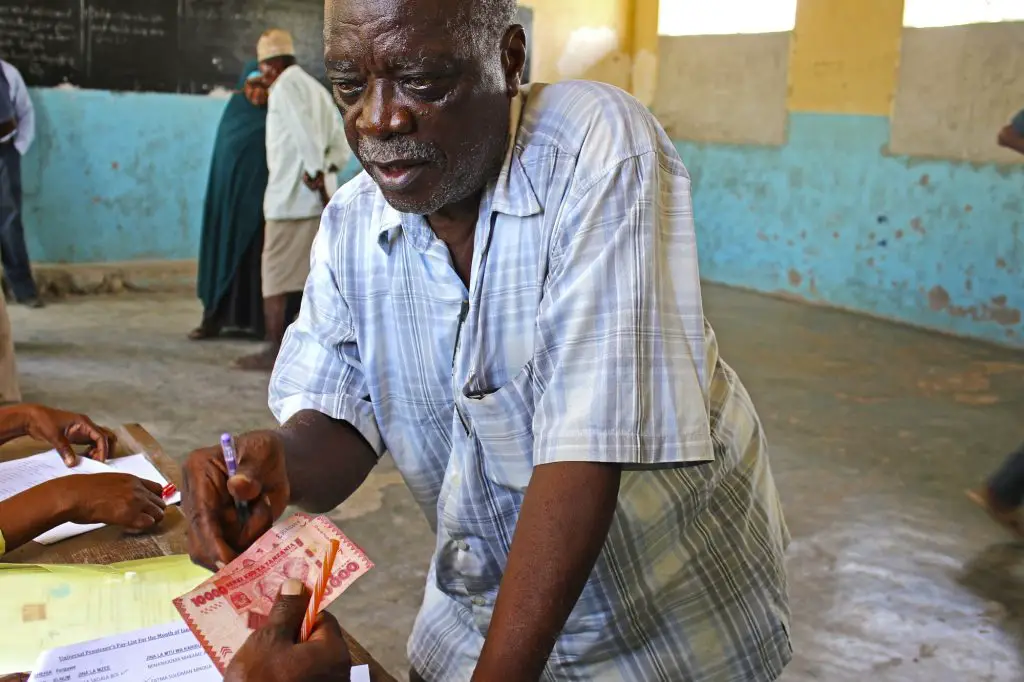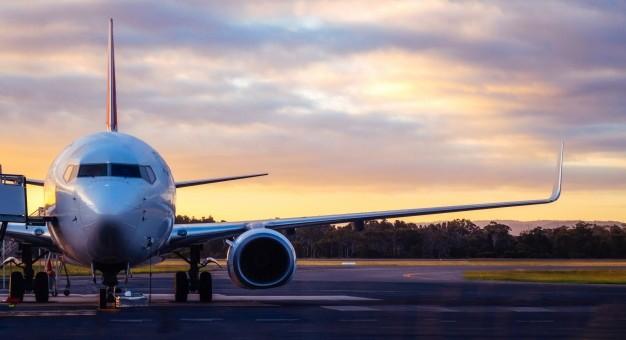- Youth Unemployment in Kenya: The Role of Vocational Training
- New $900,000 initiative aims to boost sustainable trade in Tanzania
- Organization of the Petroleum Exporting Countries’ (OPEC) pride in its African roots
- AIM Global Foundation pushes for stronger Gulf-Africa trade partnerships
- Investment opportunities in South Sudan’s emerging gold industry
- Family planning drive in Kenya gets 450,000 self-injectable contraceptive doses from UK
- AfDB commits $2 billion to revolutionise clean cooking in Africa, save forests
- The harsh realities of family laws for African women revealed
Month: June 2020
Tanzania has joined the rest of the continent in lowering borrowing rates for commercial banks in a bid to maintain their liquidity.
Tanzania’s Central Bank the Bank of Tanzania, (BoT) has cut down interest on borrowing from 7 percent to 5 percent, a move that has been welcomed by the business community.
It has also chopped rates on government securities by half, starting with treasury bills which it brought down to 5 percent from 10 percent and treasury bonds to from 40 percent to 20 percent.
These latest series of monetary measure is backed with the lowering of the required minimum cash reserve that commercial banks are otherwise required to maintain at the Central Bank.
The goal is to stimulate the economy by giving commercial banks the leeway to lower their lending rates which in turn should see business access the operating capital they need. The BoT did not stop …
When something grows by 50 percent, we say it has doubled, when it grows by 100 percent, it has quadrupled and so on and so forth. You want to know by how much telecommunication companies in Rwanda have grown during the onslaught of the coronavirus? I will tell you, an amazing 450 percent.
According to the Rwanda Utilities Regulation Authority, between January and April alone, telecom companies in Rwanda have amassed over USD 42 million that is an average of USD 10 million a month.
This impressive performance is representative of a drastic paradigm shift, the migration from a pre-dominantly cash based society to one that has gone almost absolutely cashless. Rwanda has in the fight against the spread of coronavirus gone cashless, switching from use of cash payments to digital platforms via mobile money transfers.
Last month, The Exchange published an article titled Digital Africa in which it was …
Helios Towers—UK based telecommunications company anticipates using around $450 million in new funds to increase its operations in Africa’s telecom sector, including Africa’s fast-growing economy Ethiopia, according to Bloomberg News.
The London listed telecom company which Q1 2020 financial show revenue increased by 9 per cent, is eyeing on capturing the region’s telecom potential, which has grown substantially over the past decade, especially in East and West African countries.
By the end of 2018, there were 456 million unique mobile subscribers in Sub-Saharan Africa – an increase of 20 million over the previous year and representing a subscriber penetration rate of 44 per cent, according to GSMA 2019 report.
Hence, the company looks forward onto Ethiopia’s process of opening its telecom industry to private investors, with two new mobile licenses up for auction alongside a minority stake in the state monopoly.
According to Bloomberg News, Helios Chief Financial Officer Tom …
The executive board of the International Monetary Fund (IMF) approved a $14.3 grant under its Catastrophe Containment and Relief Trust (CCRT) yesterday to assist Tanzania in servicing its debt to October 13, 2020.
According to the lender statement, further allocation of additional relief covering the period of October 14, 2020, to April 13, 2022, will be granted subject to the availability of resources in the CCRT, potentially bringing total relief on debt service to the equivalent of about $25.7 million.
Tanzania has been one of many countries in Africa where it’s the fast-growing economy was shaken by the coronavirus (COVID-19) pandemic.
As crucial sectors including tourism, travel and exports were hurt—the IMF equivocally noted that the debt service relief will aid “alleviating Tanzania’s balance of payment needs stemming from the COVID-19 pandemic,”
Tanzania’s closest lender also took the liberty to address various issues including debt service anticipated impacts …
By Ms. Carole Agengo, Dr. Ademola Olajide and Dr. Mohamed A. Sheikh
The writers are the Africa Regional Director for HelpAge International; UNFPA Representative, Kenya; and Director General for National Council for Population and Development (NCPD)
Africa is often referred to as the ‘world’s youngest continent.’ This is certainly true when one compares the median age of Africans, currently 19 years, while Europe’s median age is 43 years and Asia’s 32. This reflects the relatively small proportion of older adults – those aged 60 years and above, in the total population. Africa occupies the unique position of being, concurrently, the demographically youngest continent and the world region with the most rapidly growing number of older people.
The onslaught of the COVID-19 pandemic with its disproportionate impact on older persons, has heightened the urgency of social protection for the population of older persons.
In Kenya, President Uhuru Kenyatta and the Ministry …
On the onset of the pandemic, the two countries, like all other countries in the region and elsewhere in the world, Tanzania and Kenya closed their borders, for awhile. However it soon dawned on both countries that closing their borders from each other (and their neighbours) is but a band-aid solution.
The underlying trade logistics are already so entwined that no country could do without the other, short of losing hard gained economic ground. So, no sooner than they closed their borders than the two countries were forced reopen them.
That is where the third set of complications surfaced, the first was not by any fault of the countries, the onset of the coronavirus. The second was their own doing, the closure of their borders in-line with international recommendations and the third was the lack of concerted, joint response.
Also read:
…The aviation industry in Africa is expected to suffer a revenue loss of $8.103 billion this year due to COVID-19, according to a report by the African Airlines Association (AFRAA).
The analysis among the first series of study by AFRAA examining the impact of the COVID-19 pandemic on Africa’s air transport sector.
The African Airlines Association report shows that passenger revenue in the first quarter of this year dropped to $0.403 billion which represents 13.8 per cent year-over-year with more impact seen in Q2 2020 costing $2.740 billion.
Also Read: Air passengers travel confidence key to salvaging African airlines
According to the AFRAA analysis, air transport recovery is expected to start from Q3 2020 with domestic operations taking the lead followed by regional and international flights.
For the month of May, the report shows that the aviation industry recorded a 90.3 per cent year on year passenger traffic reduction.
According …
The coronavirus (COVID-19) has hurt the South African business confidence, making it to drop to the lowest level in almost 45 years.
Among the factors sited for the drop include the resources spent in virus prevention measures—particularly the strict lockdown.
What the index says
According to information from Bloomberg News, the second-largest economy in Africa readings started in 1975 showcased, the deep fall, whereas both—Rand Merchant Bank (RMB)unit and Stellenbosch University affirmed that, a quarterly gauge measuring business confidence fell to 5 in the second quarter from 18 in the previous three months.
However, a reading of 5 means “just about every respondent in the second quarter was unsatisfied with the prevailing business conditions,” RMB said. The survey was based on the responses of 1,800 business executives between May 13 and June 1.
Further, as the nation moves away from the harsh-lockdown total of around 1 800 executives surveyed across …
With climate and environmental shocks continually threatening food supplies and locusts still ravaging crops in East Africa, the situation could get worse unless adequate and timely attention is given to it.…
A few weeks ago, I was positively surprised to see a sign in a sports shop in Karen, stating that they no longer accepted cash, only cards and mobile money. Until that time, “no-cash” policies in shops was something I had only seen in the Scandinavian countries, and even there, it is still rare. Since the start of the pandemic, however, digital-only payment policies have proliferated in Kenya, and are starting to become commonplace.
Cash as a payment method has been in a slow, terminal decline in Kenya for many years, but it has managed to survive, until now.
Kenya has long been a forerunner in terms of digital payments in Africa. Even as far back as in the Moi era, many shops and supermarkets, most upscale restaurants, and virtually every hotel accepted Visa and Mastercard. This was at a time when Ethiopia had one single bank branch in the …












